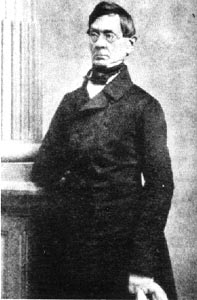|
Anton Felix Schindler
Anton Felix Schindler (13 June 1795 in Medlov – 16 January 1864 in Bockenheim (Frankfurt am Main)) was an Austrian law clerk and associate, secretary, and early biographer of Ludwig van Beethoven. Life Schindler moved to Vienna in 1813 to study law, and from 1817 to 1822 was a clerk in a law office there. He was a competent, though not an exceptional violinist, and played in various musical ensembles, first meeting Beethoven in 1814. He gave up his law career, becoming in 1822 first violinist at the Theater in der Josefstadt, and from 1825 first violinist at the Theater am Kärntnertor. His acquaintance with Beethoven continued, and from 1822, he lived in the composer's house, as his unpaid secretary.Paul Nettl. "Schindler, Anton Felix". ''Beethoven Encyclopedia''. Philosophical Library, New York, 1956. [...More Info...] [...Related Items...] OR: [Wikipedia] [Google] [Baidu] |
Immortal Beloved (1994 Film)
''Immortal Beloved'' is a 1994 biographical film written and directed by Bernard Rose and starring Gary Oldman, Jeroen Krabbé, Isabella Rossellini and Johanna ter Steege. The film narrates the life of composer Ludwig van Beethoven (played by Oldman) in flashbacks while it follows Beethoven's secretary and first biographer Anton Schindler's (Krabbé) quest to ascertain the true identity of the ''Unsterbliche Geliebte'' (Immortal Beloved) addressed in three letters found in the late composer's private papers. Schindler journeys throughout the Austrian Empire interviewing women who might be potential candidates, as well as through Beethoven's own tumultuous life. Plot When Ludwig van Beethoven dies, his assistant and close friend Schindler deals with his last will and testament. It reads that his estate, music and affairs will be left to his "immortal beloved," but there remains a question as to who is Beethoven's "immortal beloved," an unnamed woman mentioned in one of his let ... [...More Info...] [...Related Items...] OR: [Wikipedia] [Google] [Baidu] |
1795 Births
Events January–June * January – Central England records its coldest ever month, in the CET records dating back to 1659. * January 14 – The University of North Carolina opens to students at Chapel Hill, becoming the first state university in the United States. * January 16 – War of the First Coalition: Flanders campaign: The French occupy Utrecht, Netherlands. * January 18 – Batavian Revolution in Amsterdam: William V, Prince of Orange, Stadtholder of the Dutch Republic (Republic of the Seven United Netherlands), flees the country. * January 19 – The Batavian Republic is proclaimed in Amsterdam, ending the Dutch Republic (Republic of the Seven United Netherlands). * January 20 – French troops enter Amsterdam. * January 23 – Flanders campaign: Capture of the Dutch fleet at Den Helder: The Dutch fleet, frozen in Zuiderzee, is captured by the French 8th Hussars. * February 7 – The Eleventh Amendment to the United ... [...More Info...] [...Related Items...] OR: [Wikipedia] [Google] [Baidu] |
Hugo Riemann
Karl Wilhelm Julius Hugo Riemann (18 July 1849 – 10 July 1919) was a German musicologist and composer who was among the founders of modern musicology. The leading European music scholar of his time, he was active and influential as both a music theorist and music historian. Many of his contributions are now termed as Riemannian theory, a variety of related ideas on many aspects of music theory. Biography Riemann was born at Grossmehlra, Schwarzburg-Sondershausen. His first musical training came from his father Robert Riemann, a land owner, bailiff and, to judge from locally surviving listings of his songs and choral works, an active music enthusiast. Hugo Riemann was educated by Heinrich Frankenberger, the Sondershausen Choir Master, in Music theory. He was taught the piano by August Barthel and Theodor Ratzenberger (who had once studied under Liszt). He studied law, and finally philosophy and history at Berlin and Tübingen. After participating in the Franco-Prussian ... [...More Info...] [...Related Items...] OR: [Wikipedia] [Google] [Baidu] |
Josephine Brunsvik
Josephine Brunszvik, miniature drawn by pencil, before 1804. Josephine Brunsvik or Countess Jozefina Brunszvik de Korompa, Countess Josephine Deym, ( hu, Brunszvik Jozefina; 28 March 1779 – 31 March 1821) was probably the most important woman in the life of Ludwig van Beethoven, as documented by at least 15 love letters he wrote her where he called her his "only beloved", being "eternally devoted" to her and "forever faithful”. Several musicologists consider her to be the most likely recipient of the mysterious "Letter to the Immortal Beloved". Early life and first marriage Josephine Countess von Brunsvik was born on 28 March 1779 in Preßburg (now Bratislava in Slovakia), then part of the Kingdom of Hungary. Her father Anton died in 1792, leaving his wife Anna (''née'' von Seeberg) with four young children; the other three were Therese (1775–1861), the first-born, Franz (1777–1849), the only son and sole heir, and Charlotte (1782–1843). The Brunsviks lived in a magnifi ... [...More Info...] [...Related Items...] OR: [Wikipedia] [Google] [Baidu] |
The Musical Times
''The Musical Times'' is an academic journal of classical music edited and produced in the United Kingdom and currently the oldest such journal still being published in the country. It was originally created by Joseph Mainzer in 1842 as ''Mainzer's Musical Times and Singing Circular'', but in 1844 he sold it to Joseph Alfred Novello (who also founded ''The Musical World'' in 1836), and it was published monthly by the Novello and Co. (also owned by Alfred Novello at the time).. It first appeared as ''The Musical Times and Singing Class Circular'', a name which was retained until 1903. From the very beginning, every issue - initially just eight pages - contained a simple piece of choral music (alternating secular and sacred), which choral society members subscribed to collectively for the sake of the music. Its title was shortened to its present name from January 1904. Even during World War II it continued to be published regularly, making it the world's oldest continuously publ ... [...More Info...] [...Related Items...] OR: [Wikipedia] [Google] [Baidu] |
Peter Stadlen
Peter Stadlen (14 July 1910 – 21 January 1996) was an Austrian pianist, musicologist and critic, specialising in the study and interpretation of Beethoven and the composers of the Second Viennese School. Stadlen, who was born in Vienna, initially studied piano there with Paul Weingartner and composition with Joseph Marx and Max Springer (1877–1954). He then continued his piano studies in Berlin between 1929 and 1933 with Leonid Kreutzer. By 1934 he had embarked on a career as concert pianist. Stadlen premiered the Variations for piano, Op. 27 by Webern on 26 October 1937 in Vienna under the direction of the composer. (Much later he edited the definitive interpretive edition, published by Universal Edition in 1979). Stadlen was also the soloist in the German premiere of Schoenberg’s Piano Concerto at the Darmstadt Summer School on 17 July 1948. After the Anschluss, Stadlen left Austria and sought refuge in Britain in 1938. However, two years later he was interned and dep ... [...More Info...] [...Related Items...] OR: [Wikipedia] [Google] [Baidu] |
The Journal Of Musicology
''The Journal of Musicology'' is a quarterly peer-reviewed academic journal of musicology published by University of California Press The University of California Press, otherwise known as UC Press, is a publishing house associated with the University of California that engages in academic publishing. It was founded in 1893 to publish scholarly and scientific works by faculty .... The journal was established in 1982 by Marian C. Green. External links * {{DEFAULTSORT:Journal of Musicology Music journals University of California Press academic journals Quarterly journals English-language journals Publications established in 1981 ... [...More Info...] [...Related Items...] OR: [Wikipedia] [Google] [Baidu] |
William S
William is a male given name of Germanic origin.Hanks, Hardcastle and Hodges, ''Oxford Dictionary of First Names'', Oxford University Press, 2nd edition, , p. 276. It became very popular in the English language after the Norman conquest of England in 1066,All Things William"Meaning & Origin of the Name"/ref> and remained so throughout the Middle Ages and into the modern era. It is sometimes abbreviated "Wm." Shortened familiar versions in English include Will, Wills, Willy, Willie, Bill, and Billy. A common Irish form is Liam. Scottish diminutives include Wull, Willie or Wullie (as in Oor Wullie or the play ''Douglas''). Female forms are Willa, Willemina, Wilma and Wilhelmina. Etymology William is related to the given name ''Wilhelm'' (cf. Proto-Germanic ᚹᛁᛚᛃᚨᚺᛖᛚᛗᚨᛉ, ''*Wiljahelmaz'' > German ''Wilhelm'' and Old Norse ᚢᛁᛚᛋᛅᚼᛅᛚᛘᛅᛋ, ''Vilhjálmr''). By regular sound changes, the native, inherited English form of the name shoul ... [...More Info...] [...Related Items...] OR: [Wikipedia] [Google] [Baidu] |
Borders Press
A border is a geographical boundary. Border, borders, The Border or The Borders may also refer to: Arts, entertainment and media Film and television * ''Border'' (1997 film), an Indian Hindi-language war film * ''Border'' (2018 Swedish film), a fantasy film * ''Border'' (2018 Bhojpuri film), a war film * ''The Border'' (1982 film), an American drama * ''The Border'' (1996 film), an Italian war drama * ''The Border'' (2007 film), a Finnish-Russian war drama * ''The Border'' (2009 film), a Slovak documentary * ''The Border'' (TV series) a 2008–10 Canadian drama series Literature * "The Border", a 2004 short story by Richard Harland * "The Border", a 2019 novel by Don Winslow Music * "Border" (song), by Years & Years, 2015 * "Borders" (Feeder song), 2012 * "Borders" (M.I.A. song), 2015 * "Borders" (The Sunshine Underground song), 2007 * ''The Border'', soundtrack to the 1982 film, by Ry Cooder * "The Border" (America song), 1983 * "The Border" (Mr. Mister song), ... [...More Info...] [...Related Items...] OR: [Wikipedia] [Google] [Baidu] |
Ann Arbor, Michigan
Ann Arbor is a city in the U.S. state of Michigan and the county seat of Washtenaw County, Michigan, Washtenaw County. The 2020 United States census, 2020 census recorded its population to be 123,851. It is the principal city of the Ann Arbor List of metropolitan statistical areas, Metropolitan Statistical Area, which encompasses all of Washtenaw County. Ann Arbor is also included in the Metro Detroit, Greater Detroit Combined statistical area, Combined Statistical Area and the Great Lakes megalopolis, the most populated and largest Megaregions of the United States, megalopolis in North America. Ann Arbor is home to the University of Michigan. The university significantly shapes Ann Arbor's economy as it employs about 30,000 workers, including about 12,000 in the University of Michigan Health System, medical center. The city's economy is also centered on high technology, with several companies drawn to the area by the university's research and development infrastructure. Ann A ... [...More Info...] [...Related Items...] OR: [Wikipedia] [Google] [Baidu] |
Barry Cooper (musicologist)
Barry Cooper (born 1949) is an English musicologist, composer, organist, Beethoven scholar, and editor of the ''Beethoven Compendium''. Life Born in Westcliff-on-Sea in Essex, Cooper studied piano and composition in his childhood, leading to scholarships to Gordonstoun School and later to University College, Oxford, where he studied organ with John Webster and earned an MA in 1973 and a DPhil in 1974. His musical compositions include an oratorio, ''The Ascension''. But Cooper is best known for his books on Beethoven, as well as a completion and realization of Beethoven's fragmentary Symphony No. 10. Having extensively studied Beethoven's sketchbooks and written a book about them, ''Beethoven and the Creative Process'', Cooper felt confident enough to identify the sketches for the individual movements of the Symphony and put together those for the first movement into a musically satisfactory whole. The realisation was recorded by the London Symphony Orchestra conducted by Wyn Mo ... [...More Info...] [...Related Items...] OR: [Wikipedia] [Google] [Baidu] |



